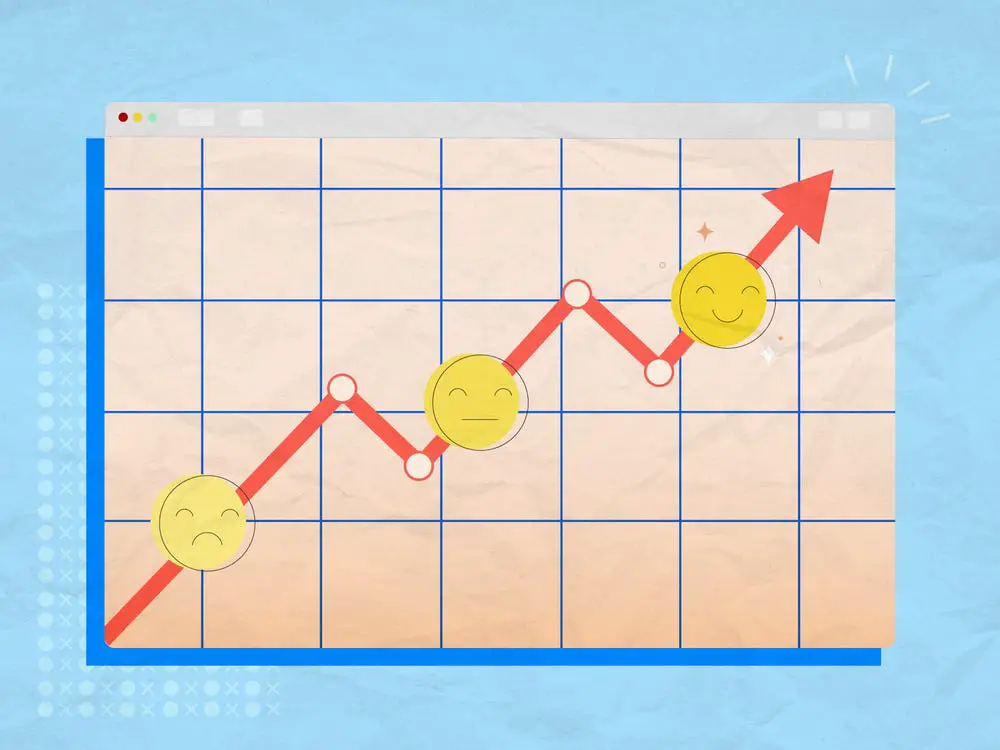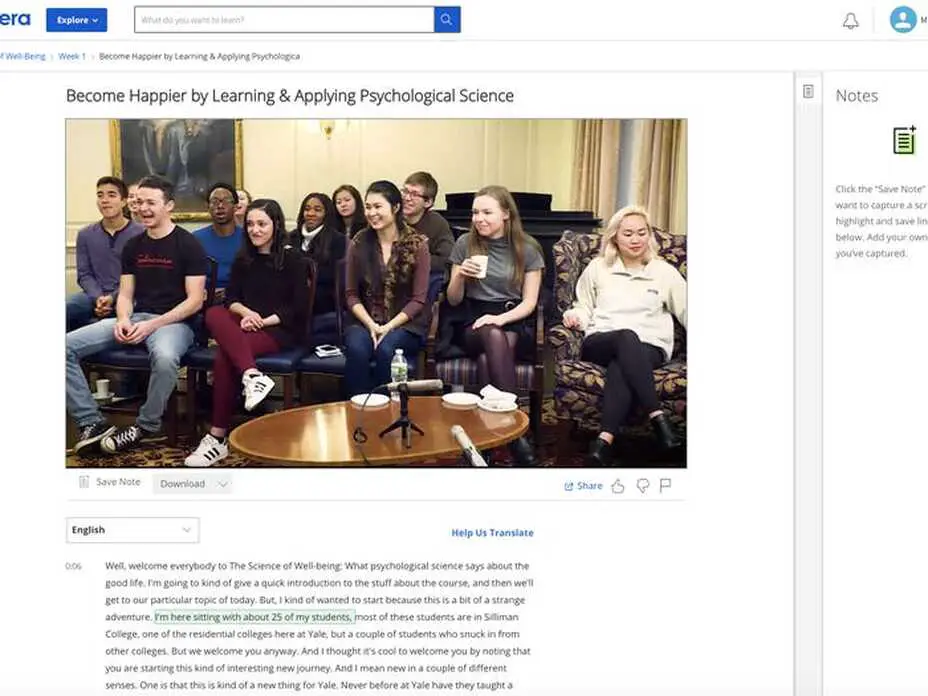|
How do we live a more meaningful life? Answering this abstract life question in a tangible, actionable way can be tough. But Yale professor Laurie Santos aimed to do just that, and in the spring of 2018, she unwittingly launched "Psychology and the Good Life," the most popular class in Yale's 319-year history. Eventually, one in four Yale students were reportedly enrolled, with the university even pulling fellows from the School of Public Health and its Law School to help staff it. Santos designed the course to bust myths about what makes us happy (like the luxury Mercedes-Benz status symbol) and replace them with research-backed habits for building a happy life. In doing this, Santos gave students what many of us never stop craving: direction towards a more fulfilled life, and the reassurance that our path towards happiness won't lead us astray. Yale's campus was primed for Santos' course. "Psychology and the Good Life" debuted in the US — home to supposedly only the 18th-happiest population in the world, according to the 2020 World Happiness Report — and at one of the nation's most high-pressure colleges. Given its popularity, it was soon clear that this course could be relevant to those outside an Ivy League campus. To increase accessibility to the materials, Santos created a free online version of the same principles: "The Science of Well-Being." And in 2020, the world was primed for it. During the isolation brought on by the COVID-19 pandemic, a whopping 2.2 million people enrolled in the course online. You can take the course for $0 here, which takes an estimated 10 weeks (19 hours total) to complete. Or, keep reading for an overview of what to expect and a firsthand review of the online course. What to expect from the class: The course intentionally feels warm, casual, and inviting. It was shot in Santos' home with a handful of students. Mara Leighton/Business Insider The format:
Each section includes video lectures, optional readings, and "rewirement" activities to do each day to build happier habits. Research suggests that if you do these rewirements as prescribed, you should get a boost in your mood and overall well-being. After completing the five weeks above, students should commit to practicing one rewirement exercise for at least a month. What the course is like:To make the class warm and inviting, the lectures are shot in Santos' own home, with a handful of Yale students in the audience. It feels intimate, and Santos's tone is friendly and conversational. And, because some of the most contemporary research was conceptualized and coined by Santos herself, it feels like what it is: a great, in-depth exploration of the topic with an expert. Thankfully, for the busiest among us (who ironically may benefit the most from this course), there's absolutely no required reading or grade penalty for a missed assignment deadline — so you don't need to stress about suggested deadlines if you can't meet them. All the information you need to know is summarized within the lecture. If you want to dive deeper, Santos provides links to complementary readings. In other words, this class is about well-being — and it aims to practice what it preaches. You can sign up here for free, or keep reading to learn about my experience. Weekly "rewirement" activities help build habits that make us scientifically happier: savoring, practicing gratitude, meditating, and acts of kindness among them. Mara Leighton/Business Insider
I should disclose that I enjoy online classes. In the character-strengths test that you're invited to take at the course's outset, "curiosity" was my most dominant trait out of the 20 possibilities. But despite being a candidate of least resistance, I was surprised by how much I enjoyed a few weeks in the course. It felt immediately and concretely useful — most of the class legwork is completing daily "rewiring" tasks designed to build those research-backed happiness habits into your life even after the course ends. Here's what I liked:
The only thing to note is that, while you can take the class at your own pace, you're encouraged to implement the rewiring techniques on a weekly schedule. Research finds that improving your well-being takes daily, intentional effort over long periods — meaning this 10-week class is a great opportunity. In a follow-up interview that I conducted with Professor Santos to discuss happiness in quarantine, this point — the importance of building these habits every day — remained paramount. Should you get a certificate? What does it include? Maybe, but most likely not. You'll have access to all the course materials and forums for this class without paying. But, if you want a certificate of completion or graded homework assignments, you can pay $49. You can also always upgrade any time during the course or afterward, so it's probably worth it to test it out for free before committing to payment. If you can't afford the $49, apply for the course's financial aid. Click on the "financial aid" link beneath the "enroll" button on the left. You'll be prompted to complete an application and will be notified if you're approved; applications take at least 15 days to be reviewed. Coursera The Science of Well-Being One of Yale's most popular classes ever (and a Business Insider favorite), this class debunks some of the most common myths about happiness and teaches you how to authentically improve your well-being.
0 Comments
Leave a Reply. |
Written, Compiled & Edited byThe Bergen Review Media Team
�
Archives
April 2024
Categories
All
|
|
Bergen Review Media is a
WebClientReach, llc Company |
50 East Ridgewood Ave. #215
Ridgewood, NJ 07050 Phone: (201) 948-5500 |
The Bergen Review is Bergen county's concierge for the best businesses, restaurants & venues in New Jersey. Our agency has a combined total of over 15 years experience in online media and marketing. Our team of experts scour every nook and cranny of New Jerseys best businesses, restaurants & venues to present to our clients the full scoop of where best deals & experiences are. Even after researching & looking at reviews, finding the REAL scoop on what Businesses, restaurants or venues best fit your interest can be a challenge. Bergen Review Media has a team that researches & visits various establishments. Making sure the consumer gets the best experience.
|
Website by Bergen Review Media




 RSS Feed
RSS Feed






